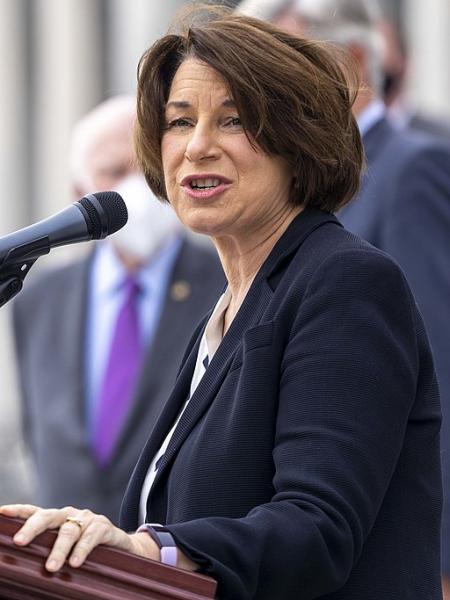 Senate Democrats, CC BY 2.0
Senate Democrats, CC BY 2.0 The Senate is considering S. 2747, the misleadingly-named “Freedom to Vote Act” sponsored by Sen. Amy Klobuchar (D-Minn.).
While proponents pitch the bill as a moderate compromise after H.R. 1’s crippling defeat, in reality S. 2747 contains many of the same provisions that amount to a federal takeover of elections to the benefit of the Democrat party.
ATR opposes the “Freedom to Vote Act.”
The U.S. Constitution grants states and localities primary administration over elections. The Framers did not believe that Washington should force states into a one-size-fits-all framework for running elections.
S. 2747 would override state election laws in a number of different ways. The bill significantly undermines voter identification laws nationwide by banning states from requiring photo ID to vote, despite the fact that photo ID laws are supported by 81 percent of voters.
States that have voter ID laws would be forced to accept a long list of documents as proof of identification, including utility bills, debit cards, Medicaid cards, or any other government-issued document containing the individual’s name. These eligible documents, which number at least twenty, can be presented as valid forms of identification at the ballot box even if they expired up to four years ago.
However, individuals who fail to provide eligible identification can still vote if they find an adult to attest that they have known the individual for six months. This is a huge loophole that renders existing voter ID laws completely toothless.
S. 2747 further tramples on state election law by forcing states to expand voting by mail. At the same time, the legislation expressly prohibits identification requirements as a condition of obtaining or casting mail-in-ballots. Individuals would no longer have to provide a driver’s license number or social security number to obtain an absentee ballot, despite the fact that 71 percent of voters support requiring photo ID for mail-in ballots. The bill also bans witness signature or notarization requirements for absentee ballots, and forces states to allow no-excuse absentee voting.
The legislation contains several provisions that would jeopardize safe, effective, and secure election administration. The bill makes it harder to clean up voter rolls by prohibiting commonsense standards designed to weed out bad registrations. S. 2747 also mandates nationwide automatic registration, which could result in duplicative registrations of the same individual or registration of large numbers of ineligible voters. The bill also mandates that states provide 24/7 drop boxes for ballots but does not require the boxes to be monitored to prevent ballot tampering or illegal ballots from being cast.
S. 2747 contains several holdover provisions from H.R. 1, including enacting anti-free speech regulations on online advertising. This provision would force online platforms to maintain a publicly-accessible database of any requests to purchase political advertising that total over $500 in a given calendar year. Information disclosed would include the name and address of the purchaser, chilling free speech and opening up Americans participating in the political process to intimidation and harassment. In an era of doxxing and cancel culture, it is more important than ever to protect donor privacy.
Finally, S. 2747 contains H.R. 1’s subsidy for politicians in the form of a 600 percent match for small-dollar political contributions to House candidates. Any individual that donates under $200 to a candidate or PAC is entitled to a 6 to 1 match from the federal government. In effect, this provision would force taxpayers to subsidize political campaigns. Under S. 2747, states can opt-in to this “program.”
Ultimately, while touted as a moderate compromise, the “Freedom to Vote Act” is still a federal takeover of election law to the benefit of the Democrat party.

